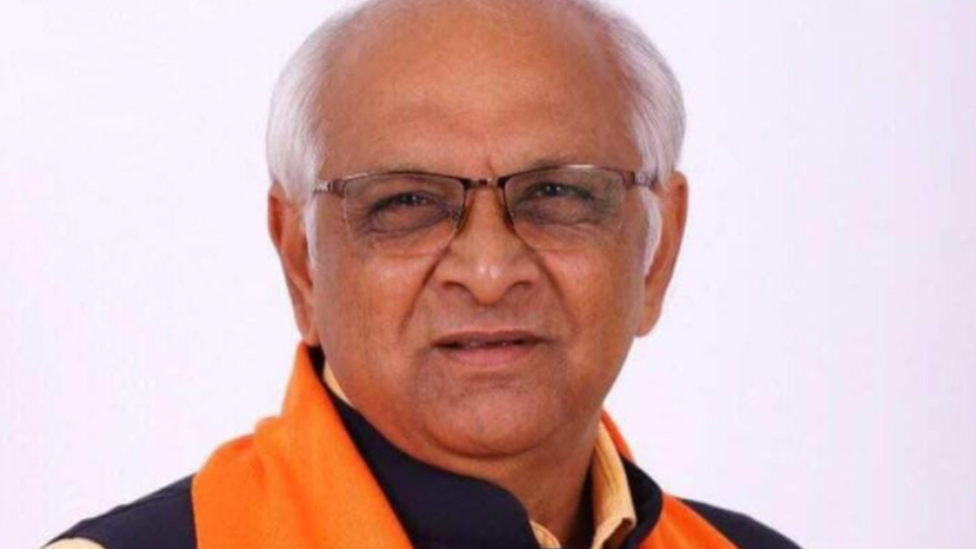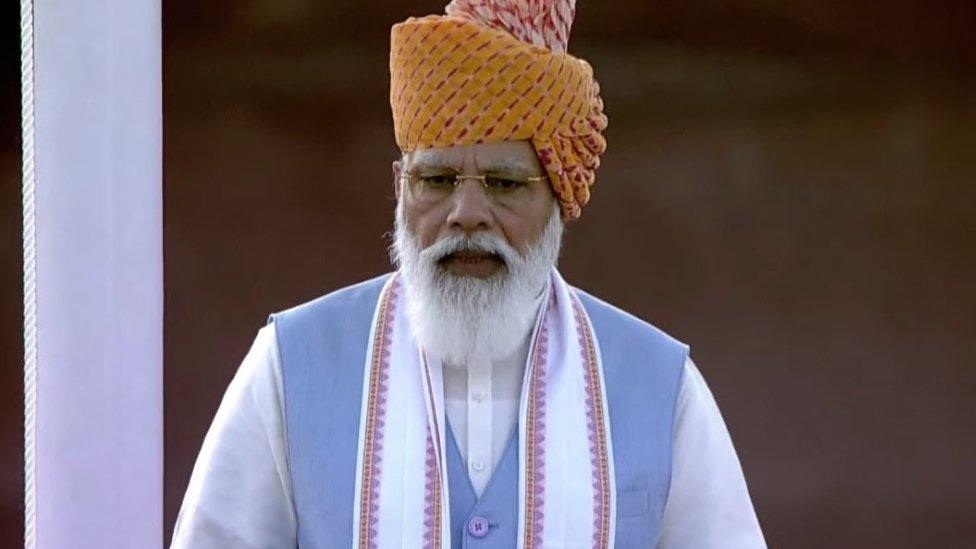Bhupendra Patel: Why Gujarat chief ministers can't finish their term
- Published

Bhupendra Patel is an influential leader of the Patidar caste in Gujarat
India's governing Bharatiya Janata Party (BJP) has chosen a new chief minister in Prime Minister Narendra Modi's home state of Gujarat.
Mr Modi served as the chief minister of the state for more than 12 years before his landslide win in the 2014 general election brought him to national politics.
But the two chief ministers who were sworn in since have not completed their five-year term. The outgoing chief minister, Vijay Rupani, has now been replaced with Bhupendra Patel before next year's assembly election.
This is a familiar script.
Former chief minister Anandiben Patel had to make way for Mr Rupani in 2016 - just months before the state voted for a new assembly.
What's driving this strategy?
Experts say that one of the main reasons is that no other state leader has been able to match Mr Modi's style of absolute leadership.
Political analyst Jatin Desai said both Ms Patel and Mr Rupani were constantly compared with Mr Modi and fell short of expectations.
"Mr Modi never faced any challenge - both in the state or from the central BJP leadership - during his tenure in the state. He was able to carve out an image of a pro-development leader and no other politician has been able to compete with that," he told BBC Gujarati.
Mr Modi was also able to keep the party united, tackling dissenting voices effortlessly, Mr Desai added, unlike his successors who have not shown "similar abilities".
But other analysts believe that Mr Modi changed chief ministers twice to prevent another leader from becoming prominent in his home state.

Mr Modi served as the chief minister of Gujarat for more than 12 years
Dr Hari Desai, who has followed Gujarat politics for decades, says the prime minister wants to protect his legacy in Gujarat.
"This strategy is very similar to what former PM Indira Gandhi did [in 1970s and early 1980s] to stop any challenge to her leadership. Mr Modi and the BJP are following the same script," he said.
The BJP has also appointed new chief ministers in the Himalayan state of Uttrakhand, which will also vote for a new assembly next year, and in the southern state of Karnataka.
The current political situation in Gujarat is also a sign of the uncertainty that has prevailed since Mr Modi became PM. Ms Patel didn't have much time to settle down in her role before the state witnessed huge protests from the influential Patidar (also known as Patel) community which wanted quotas in government jobs.
The community is also known to traditionally support the BJP. Analysts say her inability to control the protests allowed the BJP to request for her resignation.
The decision paid dividends as the party retained Gujarat in state polls in 2017. The BJP appears to be following the same script again.
The 'surprise' candidate
The decision to appoint Mr Patel, a first-time legislator with no previous experience in the government, has surprised analysts.
The 59-year-old has served as a state lawmaker since winning from Ghatlodia constituency in 2017.
He was reportedly the top choice of both Mr Modi and Home Minister Amit Shah, whose home state is also Gujarat. Mr Patel was chosen over frontrunners such as health minister Mansukh Mandaviya and Praful Khoda Patel, the controversial administrator of Lakshadweep islands.
But experts say this is a calculated move.
Mr Patel is a Patidar - the politically influential farming community comprises some 20% of Gujarat's population.
Patels have traditionally voted for the BJP. But reports say the group has lately been upset with the party over its lack of representation in the government.
Gujarat is a crucial state for the BJP - the party has been in power here for more than two decades. And Mr Modi's tenure there propelled his run for prime minister.
Analysts say the BJP's decision to name a chief minister from the Patel community, therefore, could be an important step to avoid any electoral setback.
On Sunday, Mr Rupani endorsed Mr Patel and said the party will "successfully contest the polls" under his leadership.

Here are five reasons why Narendra Modi won India's election
